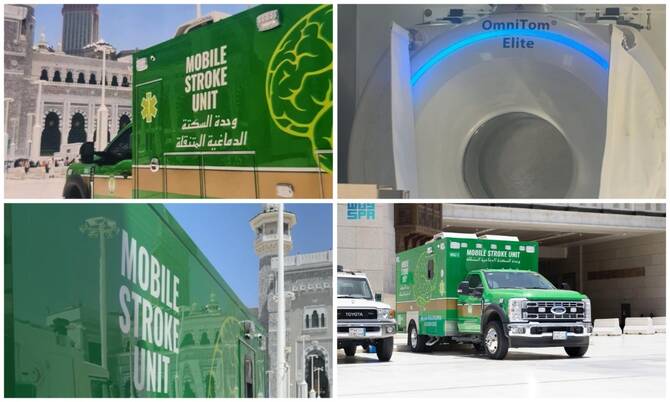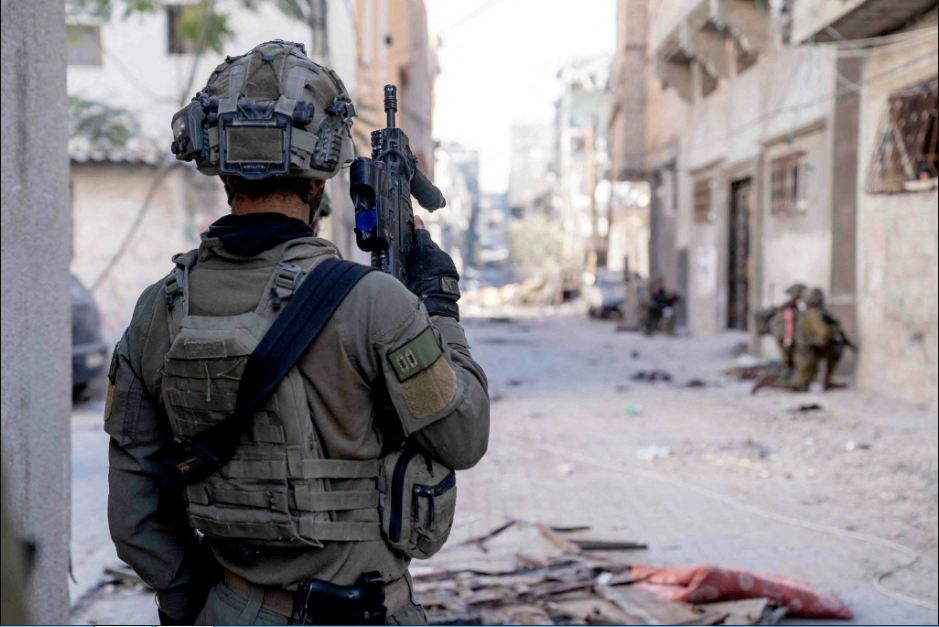Saudi Health Authorities Deploy Stroke Response Unit at Hajj Holy Sites
Makkah — In a groundbreaking advancement in Hajj healthcare, Saudi Arabia has launched its first mobile stroke unit at the Grand Mosque in Makkah, marking a significant milestone in medical readiness during the annual pilgrimage.
The specialized unit, designed to deliver life-saving stroke treatment directly at the site of emergencies, is being deployed for the first time during Hajj 2025. Dr. Abdullah Al-Harthi, executive director of Ajyad Hospital and emergency medicine consultant, described the initiative as a “revolutionary step in stroke care.”
“The mobile unit eliminates the need to transport patients to a hospital,” Dr. Al-Harthi told local media. “It allows rapid access to difficult areas and immediate intervention, improving survival rates and patient recovery.”
Equipped with a CT scanner, intravenous contrast system, clot-dissolving drugs, and high-speed internet with a 360-degree live camera, the unit allows real-time monitoring by consultants located remotely, ensuring swift diagnosis and treatment. Each unit operates with a highly trained team consisting of a neurologist, cardiologist, respiratory therapist, radiologist, emergency nurse, and paramedic.
A collaboration between Health Holding Co., the Makkah Health Cluster, and King Faisal Specialist Hospital & Research Center, the initiative was rolled out under the supervision of the Ministry of Health. Dr. Al-Harthi confirmed that the unit treats one patient at a time, typically completing diagnosis and treatment within 15 minutes.
One notable case involved a 60-year-old pilgrim from Uganda who collapsed inside the Grand Mosque. Displaying symptoms of a stroke — including slurred speech and paralysis — he was rushed to the mobile unit, where he underwent immediate scanning and clot-dissolving therapy. His condition stabilized within minutes, and he was later transferred to King Abdulaziz Hospital for follow-up care. Within 48 hours, the patient showed significant improvement and expressed a desire to continue his pilgrimage.
“This case underscores the critical value of early stroke intervention in protecting brain function,” Dr. Al-Harthi said, lauding the coordination among government agencies that made the initiative a reality.
The mobile unit was most recently deployed to Jabal Al-Rahma Hospital, as part of a broader strategy to deliver top-tier medical services across key Hajj locations, enabling pilgrims to complete their spiritual journey in safety and dignity.
Every year, Saudi Arabia mobilizes approximately 50,000 healthcare and support professionals who work around the clock to serve millions of pilgrims visiting the holy sites.



